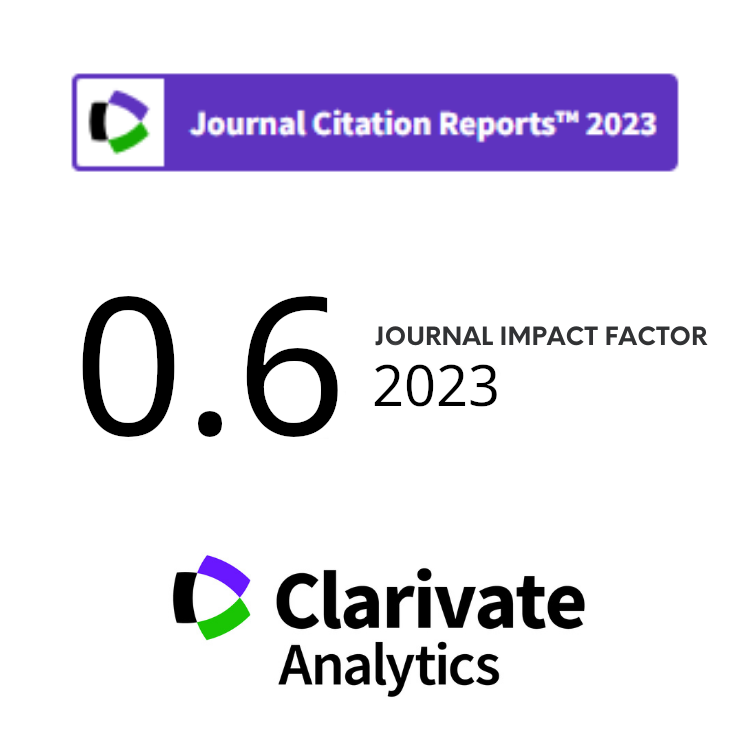Systematic Projected Shell Model Study of Even-Even Dysprosium Isotopes
Abstract
Back-bending phenomenon is one of the important phenomena usually seen at high spin states of even - even heavy nuclei. As a result, any changes in the behavior of nuclear rotation, such as increase in moment of inertia versus rotational frequency can be shown in the usual back-bending plots which have been studied in many papers before. In this paper we show for the first time that these changes can be seen in the ratio of electromagnetic reduced transition probabilities B (E2) and B (M1) in even - even 152-164Dy isotopes using the Projected Shell Model (PSM) theory. The electric quadrupole transition probability B (E2) and the magnetic dipole transition probability B (M1) moments are sensitive to nuclear shape deformation and nuclear charge distribution, respectively. Our findings confirm the well-known back-bending previously seen and are in good agreement with experimental results. While intrinsic quadrupole moments are constant for each Dy isotope, the new findings show that spectroscopic quadrupole moments are increasing with spin.
Keywords
Full Text:
PDFReferences
B. M. Nyako, J. Timar, M. Csatlos et al., Phys. Rev. 104 (2021) 054305.
S. M. Lenzi, A. Poves and A. O. Macchiavelli, Phys. Rev. 104 (2021) L031306.
K. Hara and Y. Sun, Intern. J. Mod. Phys. 04 (1995) 637.
V. Kumar, A. Kumar and and P. C. Srivastava, Nucl. Phys. 1017 (2021) 122344.
S. Aydin, M Ionescu-Bujor, N. Marginean et al., Phys. Rev. 104 (2021) 054309.
A. Barzakh, A. N. Andreyev, C. Raison et al., Phys. Rev. Lett. 127 (2021) 192501.
C. Babcock, H. Heylen, M. L. Bissel et al., Phys. Lett. 760 (2022) 387.
V. Rani, S. Singh, M. Rajput et al., Eur. Phys. J. 57 (2021) 274.
V. Velaquez, J. G. Hirsch, Y. Sun et al., Nucl. Phys. 653 (1999) 355.
Z. Wen-Hua and G. Jian-Zhong, Chin. Phys. Lett. 27 (2010) 012101.
M. Shahriarie, S. Mohammadi and Z. Firouzi, J. Korean Phys. Soc. 76 (2020) 8.
H-T. Kim, Sci. Rep. 11 (2021) 1.
P. Möller, A. J. Sierk, T. Ichikawa et al., Atomic Data and Nuclear Data Tables, 109-110 (2016) 1.
J. A. Sheikh, Y. Sun and P. M. Walker, Phys. Rev. 57 (1998) R26.
K. Rajesh, Mod. Phys. Lett. 33 (2018) 1850188.
S. Shen, F. Wang, J. Shen et al., Phys. Open 9 (2021) 100091.
V. Rani, P. Verma, S. Singh et al., Chin. Phys. 44 (2020) 094107.
T. Islam, R. Amin, R. Alam et al, J. Nucl. Sci. Technol. 10 (2020) 129.
B. K. Usta and S. Eser, Acta Phys. Pol. 137 (2020) S1-S42.
H. Zanganeh, A. Kardan and M. H. H. Yazdi, J. Nucl. Sci. Technol. 41 (2020) 32.
H. Ryde, Eur. Phys. J. 46 (2021) 1.
Anonymous, Oak Ridge National Laboratory. https://radware.phy.ornl.gov/. Retrieved in August (2021)
DOI: https://doi.org/10.17146/aij.2022.1190
Copyright (c) 2022 Atom Indonesia

This work is licensed under a Creative Commons Attribution-NonCommercial-ShareAlike 4.0 International License.











